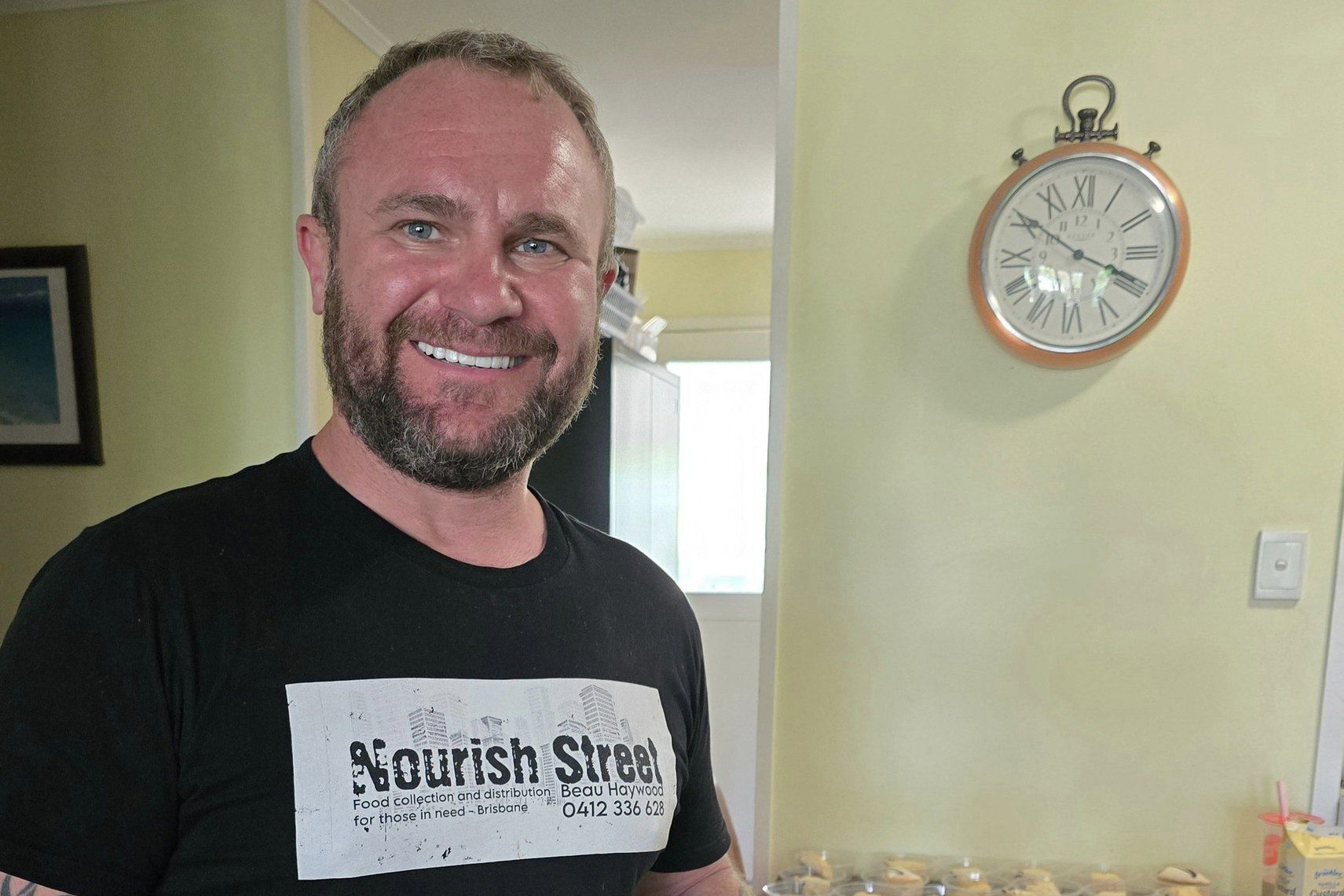News
21 January, 2025
Fear and concern on the ground as new rules come in
Two Moreton Bay residents who deliver tent-to-tent meals to the homeless, have voiced concerns over the impact of the Moreton Bay Council’s new regulations concerning caravanning and pet ownership.

Their insights reveal the ongoing challenges faced by the homeless.
The Person’s Experiencing Homelessness Camping Framework, decided at a Council meeting on December 12, included the prohibition of the keeping of animals by all people camping in Council’s public spaces.
There was also a change ending the use of caravans, camper trailers and other vehicles equipped for the purposes of camping on Council land.
Fears among the homeless
Beau Haywood, from Nourish Street, provides meals five days a week across seven suburbs, including Redcliffe and Petrie, servicing around 150 homeless individuals each night.
According to Mr Haywood, many of his clients said they felt intimidated by the new rules, leading to a dispersal of homeless individuals throughout the region or to neighbouring councils.
“I think it has definitely put the fear into people sleeping in their vehicles or owning pets,” he said.
“There are people I serve who come back to the area for dinner but then leave again because they’re afraid of copping an $8,000 fine.”
Mr Haywood highlighted that alternatives such as state or national parks, or caravan parks, are often unfeasible.
“During Christmas, after the Council announced the changes, these parks were either full or overpriced,” he said.
Mr Haywood added that since being back from break last week, he has noticed a change in living arrangements, seeing a significant increase in people sleeping in tents and a decrease in vehicle dwellings.
“I was expecting a massive decrease on my first night back, but instead I’ve noticed more tents and new faces in the areas I serve, which suggests homelessness is on the rise again,” Mr Haywood said.
“It’s not people moving from cars to tents; it’s new individuals altogether.”
Pets and mental wellbeing
The new regulations have also caused significant distress among pet owners in the homeless community, The Sentinel has been told.
Mr Haywood shared the story of a woman who left the area entirely to avoid the risk of having her dogs seized.
“There are at least three people I can think of who said that if their dog were taken from them, they would give up on life,” he said.
Mr Haywood said he sees at least five dogs every night, and has never had a negative experience.
“All the dogs I’ve seen are very friendly and they’re around people all the time and around their owner and I’ve never seen a vicious one,” he said.
Mr Haywood added that he believes Council is “playing political handball with the vulnerable”, by taking the action to try to push the state and federal government to do something.
Michael Cox from Eats 4 the Streets acknowledged Council’s safety concerns, but argued that pets often provide critical emotional support to their owners.
“As any dog owner knows, the bond with a pet is profound, and being separated from them is a heartbreaking decision.”
Mr Cox encouraged community members to step forward and help, whether by offering land for caravans or fostering pets temporarily.
“As a community, we have the power to make a substantial and positive impact on people’s lives,” he said.
Council regulations and perceptions
Council has emphasised that the main reason for the new regulations was a genuine safety concern for the public, given alleged increases of aggression, anti-social behaviour and dog attack reports.
It was a point Mr Haywood said he disagreed with.
“I understand that the actions of a few sometimes ruin it for others, but I think the few individuals out there causing problems should be dealt with individually by police, rather than blanketing it over the entire community,” he said.
“The homeless people I’ve spoken to have not caused backlash toward Council workers, actually wanting Council workers to come and clean the rubbish bins and service the toilets.”
Mr Haywood emphasised that the homeless community often faces unfair stereotyping, particularly regarding rubbish and hygiene.
“Problems of rubbish piles and dirty toilets are due to lack of servicing to the areas,” he said.
Providing support and building relationships
“I see instances of homeless people cleaning public spaces more often than I don’t,” he said.
“There are areas where people don’t do the right thing and are messy, but there are a lot of people doing good and they get overlooked.
“Toilets and bins stopped being serviced, so rubbish bins in those areas fill up and overflow, making it look bad on the homeless people in that area.”
Mr Cox has been delivering food and essential supplies to homeless individuals in Caboolture and Morayfield over the past two years through Morayfield’s Emerge Church outreach program, also holding free community barbecues at Centenary Lakes Park every Saturday through Eats 4 the Streets.
Mr Cox said he had observed an increase in drug-related challenges over the past few months, but maintained that interactions with the homeless have been overall positive.
“We’ve built an excellent rapport with the local homeless community, including those who have been living in Centenary Lakes for up to 12 months,” he said.
Misinformation and Council concessions
Mr Cox pointed out that misinformation about the new by-laws has caused unnecessary anger towards the Council.
He noted that concessions are available for individuals meeting specific conditions, such as keeping their areas clean and actively engaging with housing services.
“We have been assured that these new restrictions on pets only apply to animals reported as dangerous and not properly controlled,” he said.
“Striking a balance between maintaining public safety and showing compassion is critical.
“The goal is not to separate people from their pets unnecessarily, but to create a framework that allows the Council to act in situations where safety is at risk.”
Mr Cox also emphasised that the regulations around campervans were not entirely new.
“These ‘new laws’ are actually a partial reinstatement of previous rules temporarily relaxed during COVID-19,” he explained.
“Affordable alternatives are available in the area, where people can set up caravans for as little as $14 per night.”
Moving forward
“Being homeless is not an offence. Police act only when anti-social, dangerous, or criminal behaviour occurs,” the spokesperson said.
“Homelessness is a complex issue that requires a holistic approach.”
Complex causes and solutions
Both Mr Haywood and Mr Cox noted that the causes of homelessness are multifaceted, with the housing crisis, rising rents, and the cost-of-living crisis playing significant roles.
“It’s easy to say addiction is a major issue in homelessness, and to an extent it is, but many people I serve are homeless because they couldn’t afford a rent increase,” Mr Haywood said.
Despite their criticism, both said that Council rangers had been fair and respectful in their interactions with the homeless.
Mr Cox urged homeless individuals to educate themselves about the new laws and engage with Council and support services respectfully.
“Resources and assistance are available. Please reach out and proactively seek housing and accommodation,” he said.
Mr Haywood and Mr Cox’s observations underscore the complexity of homelessness in Moreton Bay.
While the Council aims to maintain public safety, charities warn that the new regulations risk further marginalising an already vulnerable community.
As the debate continues, both advocates call for a balanced approach that prioritises compassion and collaboration.
Moreton Bay Council did not reply to questions.


